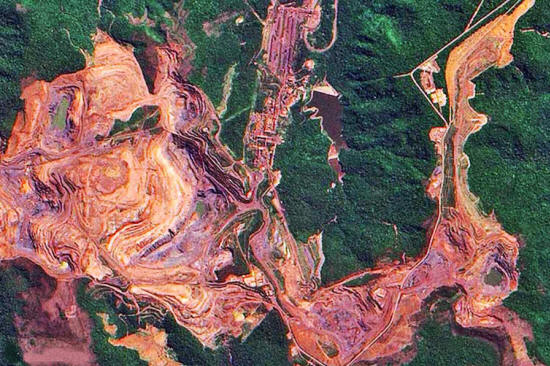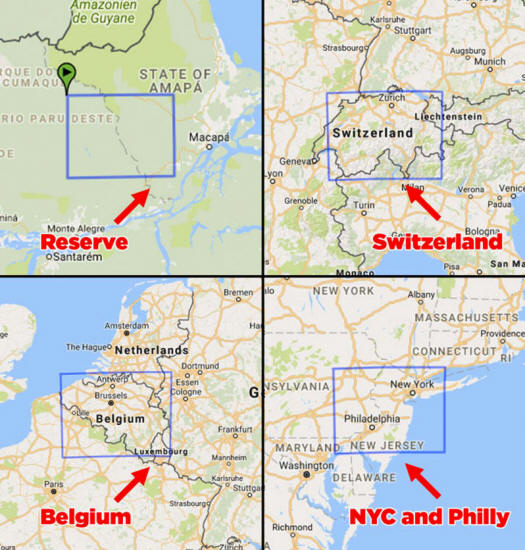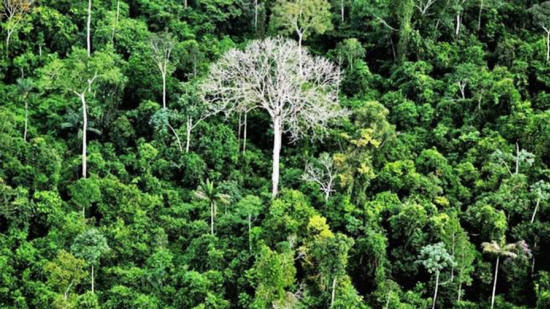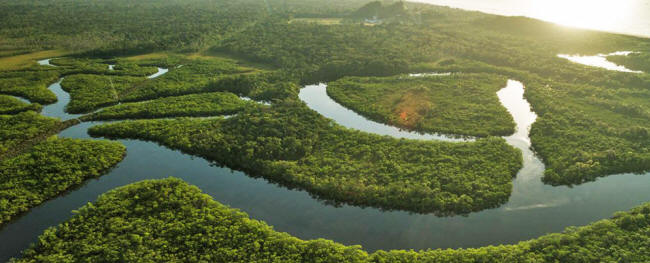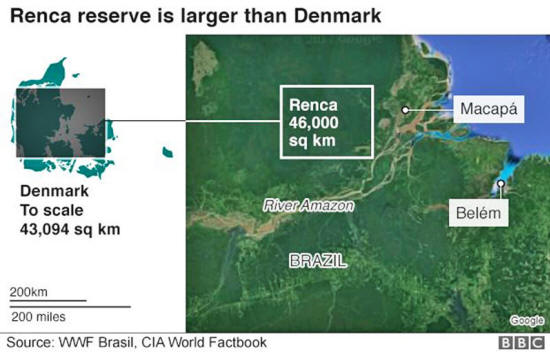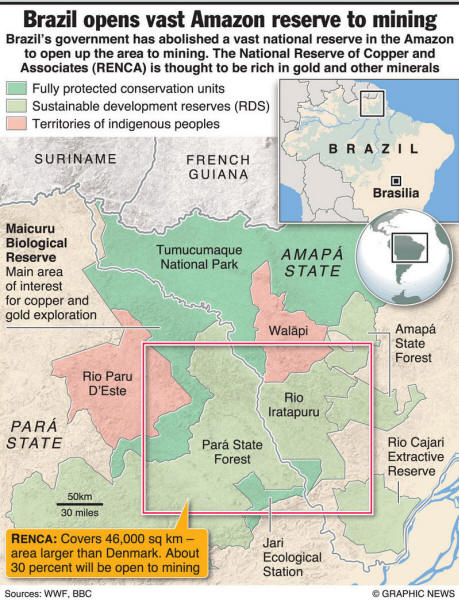|
August 25, 2017
In what is being called the biggest attack on the Amazon in fifty years, Brazil has just opened a massive area of the rainforest up to mining.
A formerly protected national reserve twice the size of New Jersey, which is home to several indigenous tribes, has been officially abolished and will be turned over to mining interests.
Sadly, the decision wasn't even made by a democratic body or informed vote, but by a presidential decree which changes rules, effectively abolishing a protected area known as the National Reserve of Copper and Associates (Renca).
Getty Images by the then-military government
Brazilian President Michel Temer's time in office has been marked by scandal and corruption, most notably for offering concessions to big business interests in exchange for money and votes.
This decree is seen by many to be politically motivated, both a reprimand of Temer's political enemies, as well as a kickback to wealthy industrial interests in the region.
Sadly, deforestation resulting from mining gold, copper, iron and other valuable metals and minerals is incredible destructive and harmful to wildlife.
Yet as time goes on more mining projects, both illicit and government sanctioned threaten even greater destruction of the earth's most precious resource.
Peru has recently stated that mining continues in spite of efforts to crack down on illegal mines, and the problem is getting worse throughout the continent.
With the new move by the Temer administration, the possibility for major conflicts between native populations and colonists working on mining projects is significant.
Many in Brazil are also concerned with bringing the gold rush to this region of the Amazon, something which is well-known to destroy local cultures.
The fact that this order was made by decree and not by any kind of vote, when so many varied interests are involved, is a troubling reminder that government can not be trusted to care for the environment.
The following video taken in Peru in 2013 gives a bird's eye view of what mining is doing to the Amazon:
Saved from Mining Operations August 31, 2017
from
ScienceAlert Website
Gustavo
Frazao/Shutterstock
But this fight isn't over yet...
Brazilian president Michel Temer sparked outrage last week when he issued a decree abolishing a protected area called the National Reserve of Copper and Associates (aka Renca) to open the land up to commercial mining.
The move sparked condemnation around the world, with critics warning mining would hasten deforestation in species-rich rainforest and threaten the existence of native peoples who live in the jungle.
A senator opposing the abolition called it,
...and that might not be hyperbole - given the decree sought to dismantle legal protections set up around a forest area larger than whole European countries such as Denmark and Switzerland.
The large natural reserve straddles the northern states of Amapá and Pará and is home to resources such as manganese, iron, and gold
Graphic shows conservation and indigenous land areas within RENCA.
Renca covers some 46,000 square kilometers (approximately 17,800 square miles) in total, encompassing nine conservation and indigenous land areas, but that's not all that lies inside its boundaries.
The reserve is thought to be rich in copper, gold, iron ore, and other minerals - valuable resources that more than 20 mining companies are vying for, which is why the government was hoping to dismantle Renca's protected status established back in 1984.
But now it looks like the action has been suspended, after federal judge Rolando Valcir Spanholo ruled on Tuesday that Temer had gone beyond his presidential authority in causing the dissolution of Renca.
Approving an injunction to halt the abolition, the judge ruled that only Brazil's congress had the power to rescind Renca's protected status, meaning the presidential decree - at least for now - is ineffective and the protections are still in place.
The ruling came after a lawsuit filed by lawyer and university professor Antonio Carlos Fernandes, who decided to get involved after the controversy broke last week.
But despite the legal victory, Renca's stay of execution might only have been postponed temporarily, not cancelled.
Brazil's attorney-general has already appealed the decision, meaning the injunction could be overturned in subsequent rulings.
Prior to the decision in the case, Temer pivoted on Monday, issuing a second decree in response to the backlash the first provoked.
The new decree states that mining would be prohibited in indigenous areas and nature preserves within Renca, and sought to establish a committee to oversee mining permits.
Some commentators have criticized the clarifications for being a thinly veiled attempt at damage control, with environment minister Sarney Filho claiming,
It's not entirely clear how this will play out, and there may be more twists in the story before we know the ultimate fate of Renca - which some claim is already being encroached upon by illegal, clandestine prospecting.
For now, at least there's an injunction to protect this massive reserve from unprecedented, all-out exploitation.
After that, the picture is uncertain, but the world is definitely watching.
|


